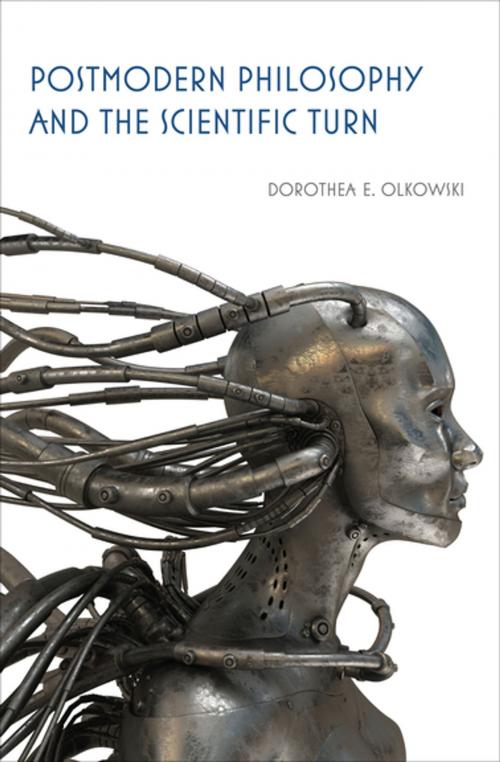Postmodern Philosophy and the Scientific Turn
Nonfiction, Religion & Spirituality, Philosophy, Phenomenology, Ethics & Moral Philosophy| Author: | Dorothea E. Olkowski | ISBN: | 9780253001146 |
| Publisher: | Indiana University Press | Publication: | April 23, 2012 |
| Imprint: | Indiana University Press | Language: | English |
| Author: | Dorothea E. Olkowski |
| ISBN: | 9780253001146 |
| Publisher: | Indiana University Press |
| Publication: | April 23, 2012 |
| Imprint: | Indiana University Press |
| Language: | English |
A groundbreaking, interdisciplinary approach to the study of consciousness: “Beautifully written, engaging throughout, and captivating” (Claire Colebrook, The Pennsylvania State University).
What can come of a scientific engagement with postmodern philosophy? Some scientists have claimed that the social sciences and humanities have nothing to contribute, except perhaps peripherally, to their research. Dorothea E. Olkowski shows that mathematics itself—the historic link between science and philosophy—plays a fundamental role in the development of the worldviews that drive both fields.
Focusing on language, its usage and expression of worldview, she develops a phenomenological account of human thought and action to explicate the role of philosophy in the sciences. Olkowski proposes a model of phenomenology, both scientific and philosophical, that helps make sense of reality and composes an ethics for dealing with unpredictability in our world.
A groundbreaking, interdisciplinary approach to the study of consciousness: “Beautifully written, engaging throughout, and captivating” (Claire Colebrook, The Pennsylvania State University).
What can come of a scientific engagement with postmodern philosophy? Some scientists have claimed that the social sciences and humanities have nothing to contribute, except perhaps peripherally, to their research. Dorothea E. Olkowski shows that mathematics itself—the historic link between science and philosophy—plays a fundamental role in the development of the worldviews that drive both fields.
Focusing on language, its usage and expression of worldview, she develops a phenomenological account of human thought and action to explicate the role of philosophy in the sciences. Olkowski proposes a model of phenomenology, both scientific and philosophical, that helps make sense of reality and composes an ethics for dealing with unpredictability in our world.















